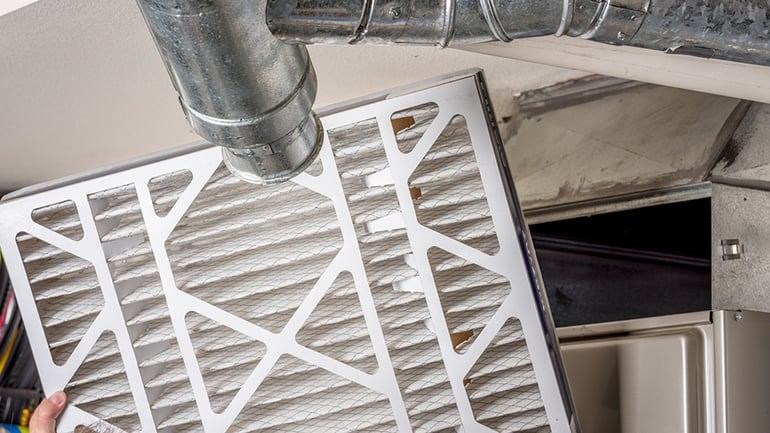
Tis the season for cold tile floors and lukewarm showers. Are you ready for the washing machine to take up all of the hot water before your first cup of morning coffee?
If these heating problems sound all too familiar, check out Warner Service’s HVAC fixes on how to get energy-efficient heating and reduce your energy usage:
Insulate your home’s attic. Sealing the attic is first on the to-do list. While a pricier fix, it’s a long-term solution that will always keep your home warm.
Add new or additional insulation to the ceiling, attic, and walls (noting the electrical outlets/boxes) throughout your home. You should also consider weatherstripping and caulk to keep doors and windows sealed to prevent drafts and air leaks. These improvements will have a big impact on your home energy consumption.
Conversely, in the warmer weather, it’ll keep the air conditioning in your home instead of leaking warm air in.
Rethink the windows. Believe it or not, windows are a major source of heat loss due to their transparency between inside your home and the outdoors. Jeff Rogers, president of the Energy Audit Institute, an energy audit training and certification company in Springfield, New Jersey, told Popular Mechanics that windows account for about 25 percent of heat loss in homes.
Start by replacing aluminum frames, which are high heat transfer devices, to Energy Star-approved vinyl frames.
Consider double- or triple-pane argon gas-filled windows. The argon acts as an insulator. If replacing the entire window is out of your renovation budget, consider a tint on the rear-facing windows. You get to keep the aesthetic while staying warm.
Keep the water heater warm. Keep the water heater set between 120 and 140 degrees Fahrenheit. Any warmer than that is unnecessary, and most new water heaters automatically set it at 140 degrees maximum.
Consider insulating the hot water lines to prevent them from cooling off too quickly between uses. If you still notice a high water heating bill, you may want to consider replacing your old water heater for a more energy-efficient heater.
Don’t use a space heater. Electric and gas space heaters are a short-term solution to a long-term heating problem. According to Quicken Loans, a mortgage loan company based in Detroit, space heaters use about 1,500 watts of energy to run, making them one of the most costly ways to drain your energy bills.
Consider using blankets or layering clothes instead. If you must use an electric heater, purchase an energy-efficient heater and unplug it when you’re not using it.
Perform a home energy audit. Another big-ticket way to find a long-term solution for your home’s heating problems is an energy audit. Hire a certified and trained professional to evaluate the inefficiencies and wasted energy costs in your home and suggest areas of improvement. If it's been some time since your last home audit, it may be time for an energy checkup.
Fix the furnace. An energy-efficient furnace, aside from insulation, is the biggest source of heat in your home. Take a few tips from Warner Service’s HVAC techs about how to keep it running through the winter:
- Change the furnace’s air filter. This makes it easier for air to circulate, lessening the work burden on the furnace.
- Seal the air conditioning and ductwork. Keeping the air in the ductwork until it reaches its destination also lessens the work burden on the furnace.
- Install a programmable thermostat. This appliance allows you to set when the heat comes on, so you don’t waste your energy supply when you’re home to experience the warmth of the furnace.
- Purchase or trade-in for higher efficiency furnaces. It burns less gas, burns hotter, and produces fewer carbon emissions in the environment. If you're concerned with your utility bill, it may be time to replace your older furnace.
Looking for more tips on how to make your home more energy efficient? Subscribe to the Warner Service blog for all of the latest HVAC and plumbing industry news.


